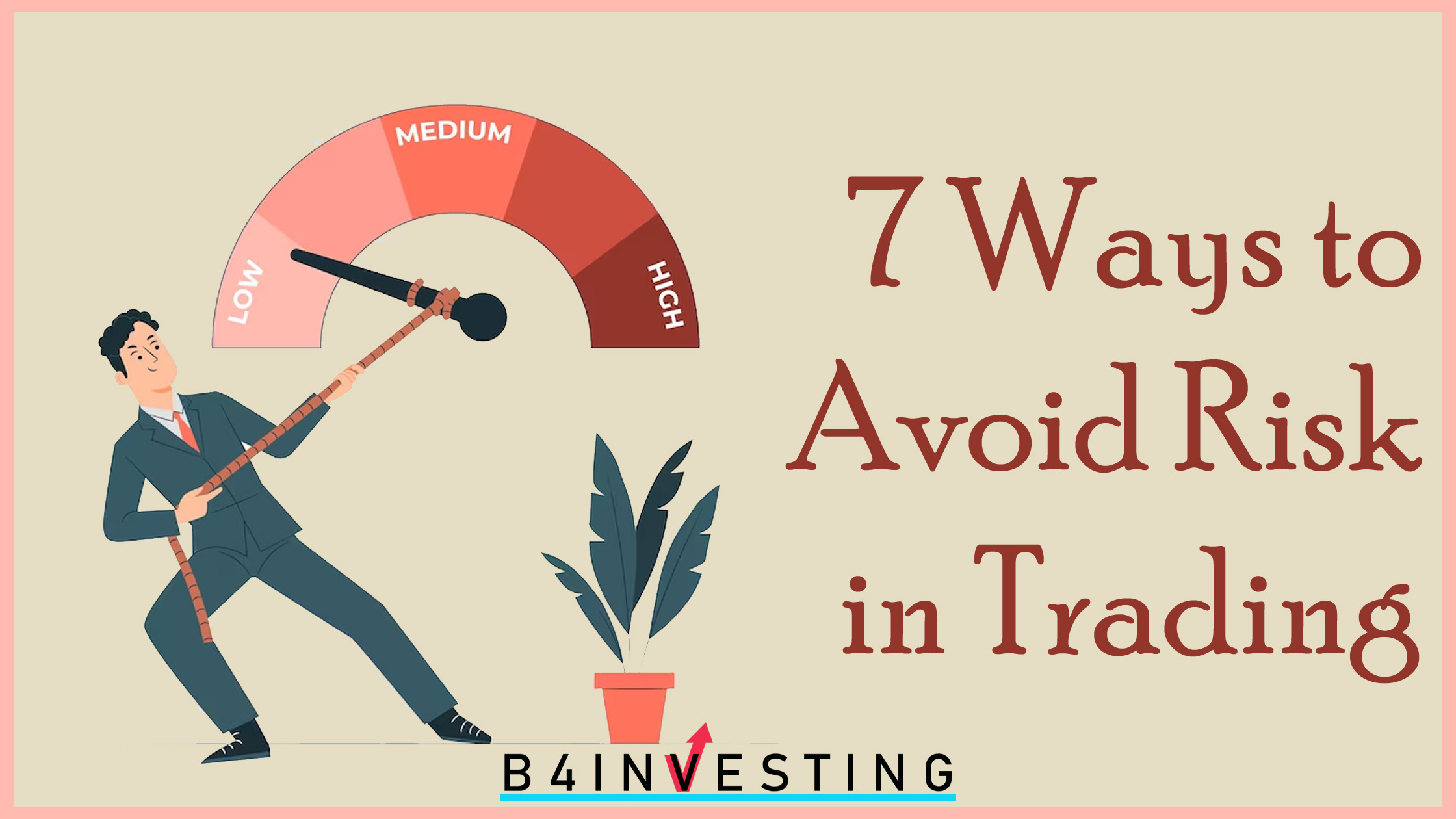
7 Ways to Avoid Risk in Trading
There is always risk in trading and there are no full proof methods to reduce the risk completely. You can reduce it but cant avoid it completely. The fact is; more the risk, more is the return. However this is not true always. Below is the list of practices an investor must do to reduce the associated risk:
Diversification:
Diversification means invest your money in different types of assets. For example, if you want to invest Rs. 10000, invest Rs 2000 in stocks, Rs 2000 in mutual funds, Rs 2000 in gold ETFs, Rs 2000 bonds, etc. This is done as market is volatile. When one asset is not performing well, others might be perform better. So, doing this just balances risk associated with volatile market.
Stay updated:
It’s important to understand what affects the market. Factors such as interest rate decisions, trade wars, economic reports, quarterly earnings reports, and some other economic events can cause massive volatility in the market.
Having a basic understanding of these factors and staying well-informed will help to reduce your risks in investing.
Setting Stop-Loss order:
Stop-loss order is placed with a broker to sell the security if the price goes below certain amount. Sometimes, a security doesn’t work as per investor’s expectation. So, investor can decide one price at which a broker sells it before it goes down more, making situation worse.
Read also: Basic Stock Market Terminology for Beginners
Set realistic goals:
Setting realistic goal is very important. Sometimes, investors set the profit goals too high and this can become riskier. If the goal is too high and investment is not performing up to the mark then investor may take investment decisions to reach to that goal which is riskier. So, the knowledge of the asset is very important. Temptation earning more money without proper study is riskier.
Avoid over confidence:
Like written above, not to take impulsive decision to reach a particular goal. Half knowledge is always dangerous. So, beginners who achieve profit in initial investment decisions might become over confident and take wrong decisions. So, study well and take advise from a person who has understanding and experience about the market.
Monitor investments regularly:
Once you invest money, you have to keep an eye on it regularly. Like, how your investment is performing and how market is performing. If the instrument in which you have invested your money is not performing well then you might sell it before bearing more loss and shift the investment capital to some other investment option. Sometimes, you might find a better performing investment option which is performing better then you might think of shifting your capital to such option. Stay alert to changing market conditions that may impact your trades
Avoid overtrading:
This is a very common mistake done by investors. You should study and then invest in share market when you are sure that it will not cause big loss to your money. Take advise from expert or broker.
Levarage:
Leverage involves using a smaller amount of your own money and borrowing the rest to amplify the size of your investment capital. Leverage can magnify both gains and losses, and it is commonly used in various financial markets, such as stocks, forex, and futures trading. It can enhance potential returns but also comes with increased risk. Traders and investors need to carefully manage leverage to avoid significant losses and consider their risk tolerance before using borrowed capital in their investment strategies.
Remember, while these measures can help manage and reduce risks, trading always involves uncertainty, and losses are a part of the game. It’s essential to approach trading with a realistic mindset and a commitment to continuous improvement.

